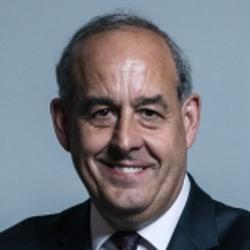Police National Computer: Directors
(asked on 31st October 2024) - View SourceQuestion to the Home Office:
To ask His Majesty's Government how many members of the Board of Directors of the Police Digital Service have served on the board of directors of a public limited company; and whether they will list (1) these members, (2) the companies on the board of which they serve or have served, and (3) how long they have served on these boards.
Tony Eastaugh CBE was appointed on 19 August 2024 as Interim Chief Executive Officer of the Police Digital Service (PDS). Any changes to these arrangements will be a matter for the PDS. More information about the leadership of the PDS is available on the PDS website: https://pds.police.uk/about-us/.
Appointments to PDS roles, the required skills of PDS employees and what professional memberships they should hold are a matter for the PDS.
The governance arrangements of the PDS Board, including the Articles of Association and Board Membership is available on the PDS website: https://pds.police.uk/governance/. Details of current and former directorships can be found on the on Companies House Website.

